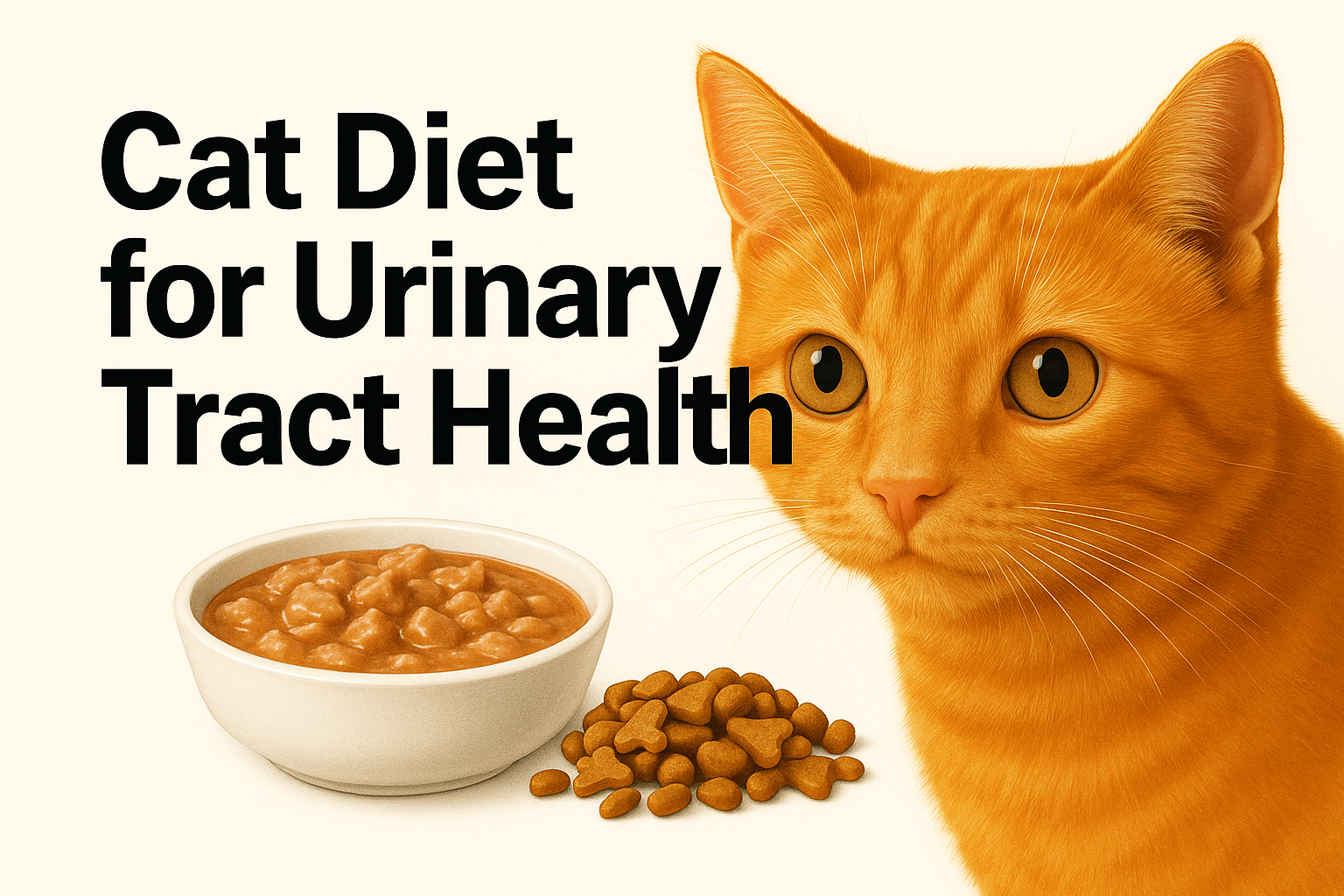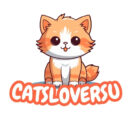Cats are beloved companions, and just like humans, they require special care when it comes to their health. One common concern among cat parents is urinary tract health. A proper cat diet for urinary tract health can help prevent issues like urinary tract infections (UTIs), bladder stones, and crystals. In this article, we’ll explore how diet affects urinary health and what foods are recommended by veterinarians.
🧠 Why Urinary Tract Health Matters for Cats
Urinary tract issues are especially common in male cats and older felines. Poor hydration, low-quality food, and stress can contribute to conditions like feline lower urinary tract disease (FLUTD). Symptoms include:
- Straining to urinate
- Blood in urine
- Frequent urination in small amounts
- Urinating outside the litter box
🥩 Nutrients That Promote Urinary Tract Health
✅ High-Moisture Foods
Wet or canned food helps keep your cat hydrated, which dilutes urine and reduces the chance of crystal formation. Cats often don’t drink enough water on their own, so moisture-rich food is essential.
✅ Controlled Magnesium & Phosphorus
Too much magnesium and phosphorus can lead to struvite stones. Choose food formulated specifically for urinary health with controlled mineral levels.
✅ High-Quality Animal Protein
Cats are obligate carnivores. Protein from chicken, turkey, and fish supports overall health and lean muscle while reducing the risk of obesity.
✅ Urinary pH Balance
Foods formulated for urinary tract health often help maintain an ideal pH level (typically slightly acidic). This reduces the risk of stone formation.
🥫 Recommended Cat Foods for Urinary Health
Veterinarians recommend the following:
- Hill’s Prescription Diet c/d Multicare
- Royal Canin Urinary SO
- Purina Pro Plan Urinary Tract Health
- Wellness Complete Health Grain-Free Wet Food
If you’re using over-the-counter brands, always look for labels that mention “urinary tract health” or consult your vet.
🥦 Foods to Avoid in a Urinary Health Diet
Explain what ingredients or food types to stay away from:
- Foods high in magnesium, phosphorus, or calcium
- Dry-only diets (low moisture)
- Fillers like corn, wheat, and soy
- Table scraps or processed human food
📌 Example:
“Avoid cat foods with excess grains, low moisture content, or unnamed meat by-products. These may worsen urinary issues by increasing the risk of crystal buildup or dehydration.”
📋 Sample Feeding Schedule
Add a basic daily feeding suggestion that includes wet food, hydration, and treat tips.
Explain what ingredients or food types to stay away from:
- Foods high in magnesium, phosphorus, or calcium
- Dry-only diets (low moisture)
- Fillers like corn, wheat, and soy
- Table scraps or processed human food
📌 Example:
“A balanced daily feeding plan may include 2–3 servings of urinary health wet food, with fresh water available 24/7. You can supplement with urinary-safe dry food for texture variety, but keep portions small.”

🧠 Why a Cat Diet for Urinary Tract Health Matters
Urinary tract issues can be painful and life-threatening. Choosing the right cat diet for urinary tract health is one of the most effective ways to prevent infections and stones.
💧 Tips to Support Your Cat Diet for Urinary Tract Health:
- Provide fresh water at all times
- Consider a cat water fountain to encourage drinking
- Feed a combination of wet and dry food
- Reduce stress with enrichment and routine
- Clean litter boxes daily to monitor urination
❗When to See a Vet
If your cat shows any signs of urinary discomfort, consult your vet immediately. Blockages can be life-threatening.
🌐 External Vet Resources
🙋 FAQs
Q: Can I feed my cat only wet food?
A: Yes, wet food is often better for cats with urinary issues due to its high moisture content.
Q: Is cranberry good for cat urinary health?
A: Some supplements include cranberry extract, but always consult your vet before use.
✅ Final Thoughts
The right cat diet for urinary tract health can be a game-changer. A balanced, vet-recommended diet—along with proper hydration and care—can prevent painful and costly health issues down the line. Make sure to consult your veterinarian before making any major changes to your cat’s diet
